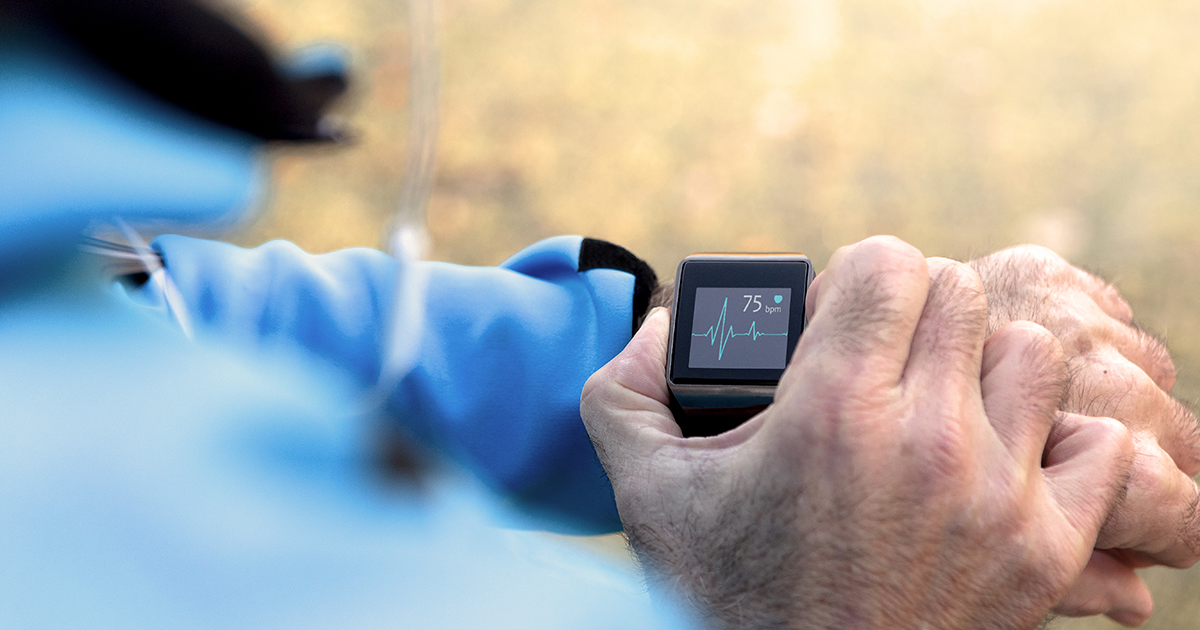Watches and activity bracelets to monitor parameters related to health are becoming more and more popular. They are useful, but they are never a substitute for a medical opinion.
Wearables are portable devices designed to monitor and record information about the person wearing them. Although used in many industries, these devices are very popular for monitoring health and wellness. Watches and activity bracelets monitor sleep and heart rate. They also count calories, steps or add sports training. And they help to follow healthy routines. Knowing when the body is reaching its limit or receiving beneficial advice on how to approach life are other of its virtues. More and more people are hooked on wearables . According to the consultancy Abi Research, in 2022 3,445 million of these devices will be sold in the world, which represents an increase of 13.2% compared to 2021. However, and despite its benefits and notable advances, a bracelet or a watch should never replace a medical opinion. Nor do they have to replace a query in the face of a possible problem. We explain it to you in this article.
Wearable: what it is and what it is used for
A wearable integrates a microprocessor that monitors and records data. They can be integrated into everyday objects, such as clothing, footwear or glasses. They can also be used independently, on a watch or fitness tracker.
Wearables have multiple applications focused on different fields. They are used in sectors such as sports and well-being, entertainment or industry. Also in the military field.
In recent times they have become very popular among people who want to lead a healthier life. Smartwatches ( smartwatches ) and activity bracelets are common. They record the physiological, biochemical, mechanical and movement parameters of the wearer.
What do these devices measure?
On the market, there is a wide range of models manufactured by different brands with different functionalities.
- The simplest ones measure steps, and heart rate, and record hours of sleep, and allow you to accumulate training sessions in the most popular sports disciplines.
- The most complete portable devices are capable of detecting if there is atrial fibrillation, controlling oxygen and respiratory rate, measuring body temperature or performing an electrocardiogram on the wearer. There are devices that even venture to give advice on the advisability of performing certain exercises or recommend rest, if they consider that the time has come.
What parameters do health wearables measure?
According to the ‘ Global Web Index ‘ report, carried out in the United States and the United Kingdom, 81% of users of smartwatches and activity bracelets say they experience an improvement in their state of health and lifestyle. And how do these devices work the prodigy? In the ranking of argued reasons is the ability to count the steps taken (66% of those surveyed), the calories burned (53%), the control of body temperature (35%), the heartbeat (35%) and the monitoring sleep patterns (34%).
The study also picks out the features that owners would like to see in these wearables in the near future. They highlight the possibility of controlling stress levels (58%), the ability to monitor blood pressure (57%) and the measurement of blood sugar levels (47%). Some of these wishes have already been fulfilled or are on the way.
But, are they reliable?
It seems evident, at least considering the results of the study, that both watches and activity bracelets positively influence the health of their owners. For some experts, such as Carme Carrion, professor of Health Sciences Studies at the Universitat Oberta de Catalunya (UOC) and researcher at the UOC’s eHealth Lab group , these devices have “a clear motivating role in introducing changes in habits newspapers”.
Technological progress will mark the future potential of wearables. Dr. Miguel Ángel Cobos, a cardiologist at the San Carlos Clinical Hospital in Madrid, has carried out a study on the reliability of an electrocardiogram carried out with a smartwatch. The conclusions, published in the Annals of Internal Medicine medical journal , reveal that the reliability index of the data obtained in this test is similar to that achieved in a health center.
More motivational than medical
Despite possible advances, Carrion questions the reliability of these devices. “Studies are being carried out on the values that these devices show related to aspects such as sweat, temperature, heart rate and even emotions, which can be indirectly related to situations of stress or anxiety. The data obtained with these measurements can be useful, for example, to raise awareness about the need to improve sleep patterns, but we must never lose sight of the fact that these are indicators, so too many expectations should not be placed on their reliability and they must always be considered as adjuncts to medical control or treatment”, he explains.
The researcher, therefore, calls for differentiating between the use of these devices as facilitators of a healthier lifestyle and their medical utility in people suffering from a specific pathology. Advances in diabetes are fast. According to Carrion, “there are achievements that are very close to implantable devices, such as systems that allow continuous monitoring of blood glucose in patients with type 1 diabetes, which significantly improves their quality of life.”
Sleep control
One of the star features of these devices is sleep measurement. Knowing how many hours you have slept and the quality of your rest ( wearables analyze the percentage of deep sleep) is literally at your fingertips. Reliability in this use, according to specialists, is relative: watches and bracelets seem to calculate the number of hours quite accurately, but not the sleep phases.
A clinical study published in the Journal of Clinical Sleep Medicine warns about sleep measurements with wearables . The text refers to an increase in patients seeking treatment for self-diagnosed sleep disorders due to these devices (insufficient duration or insomnia). In some cases , the researchers observed an obsessive-compulsive disorder (OCD) caused by excessive concern about getting a good rest. It is what is known as orthosomnia.








